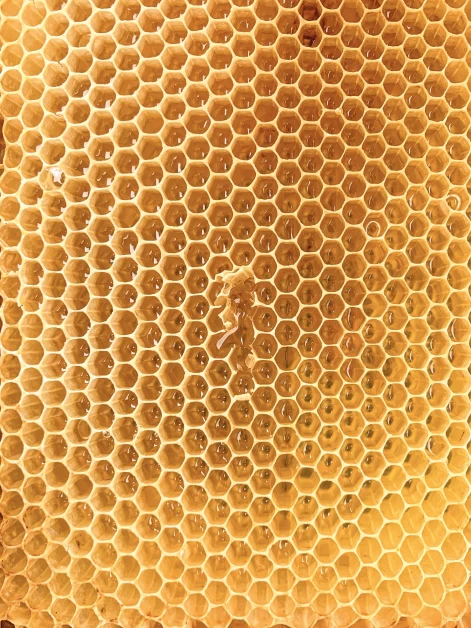Table of Contents
Manuka honey is a type of honey that has gained popularity in recent years for its potential health benefits. In particular, it has been touted for its positive effects on oral health. In this article, we will explore the benefits of manuka honey for oral health, its nutritional content, precautions, and where to find it.
What is Manuka Honey?
Manuka honey is a specific type of honey that is produced by bees that feed on the nectar of the manuka tree (Leptospermum scoparium) native to New Zealand. It is known for its unique flavor and powerful antibacterial properties. Manuka honey contains a compound called methylglyoxal (MGO), which is believed to be responsible for its therapeutic effects.
Manuka Honey and Oral Health
- Antibacterial Properties: One of the key benefits of manuka honey for oral health is its antibacterial properties. The MGO in manuka honey has been found to inhibit the growth of harmful oral bacteria, including Streptococcus mutans, which is a major contributor to tooth decay and gum disease.
Manuka honey can be used as a natural alternative to traditional mouthwashes or gargles that contain alcohol or other harsh chemicals. Its antibacterial properties can help reduce plaque formation, prevent tooth decay, and promote overall oral health.
- Anti-inflammatory Effects: In addition to its antibacterial properties, manuka honey also has anti-inflammatory effects. It can help soothe inflamed gums and reduce swelling and pain associated with oral conditions such as gingivitis or periodontitis.
Manuka honey can be applied topically to the affected areas or used as a mouthwash by diluting it with water. Its anti-inflammatory properties can help alleviate symptoms and promote healing.
- Wound Healing: Manuka honey has been used for centuries as a natural remedy for wound healing. Its antibacterial and anti-inflammatory properties make it an effective treatment for mouth ulcers, cold sores, and other oral wounds.
Applying manuka honey directly to the affected area can help speed up the healing process and reduce the risk of infection. Its natural sugars provide a moist environment that is conducive to wound healing.
- Prevention of Dry Mouth: Dry mouth, also known as xerostomia, can lead to various oral health problems, including tooth decay and bad breath. Manuka honey can help alleviate the symptoms of dry mouth by providing moisture and lubrication to the oral tissues.
Consuming manuka honey or using it as a natural sweetener in beverages can help stimulate saliva production and prevent dry mouth. However, it is important to note that excessive consumption of honey can also contribute to tooth decay, so moderation is key.
Nutritional Content of Manuka Honey
Manuka honey is not only beneficial for oral health but also contains several essential nutrients. Here is the nutritional content of manuka honey per tablespoon (21 grams):
- Calories: 64
- Carbohydrates: 17 grams
- Sugars: 16 grams
- Protein: 0 grams
- Fat: 0 grams
- Potassium: 11 milligrams
- Calcium: 1 milligram
It is important to note that manuka honey is high in natural sugars, so it should be consumed in moderation as part of a balanced diet.
Precautions and Safety
While manuka honey offers potential benefits for oral health, there are a few precautions to keep in mind:
-
Allergies: Some individuals may have allergies to honey or bee products. If you have a known allergy to honey or bees, it is best to avoid using manuka honey.
-
Infants: Manuka honey should not be given to infants under the age of one. Honey, including manuka honey, can contain spores of the bacteria Clostridium botulinum, which can cause a rare but serious illness called infant botulism.
-
Quality and Authenticity: When purchasing manuka honey, it is important to ensure that you are getting a genuine product. Look for reputable brands that display the Unique Manuka Factor (UMF) or the MGO rating on their labels. These ratings indicate the level of antibacterial activity in the honey.
-
Dental Health: While manuka honey can offer benefits for oral health, it is not a substitute for regular dental care. It is important to maintain good oral hygiene practices, such as brushing twice a day, flossing, and visiting your dentist regularly.
Where to Find Manuka Honey
Manuka honey can be found in specialty health food stores, online retailers, and some supermarkets. When purchasing manuka honey, look for reputable brands that source their honey from New Zealand and display the UMF or MGO rating on their labels.
It is important to note that manuka honey can vary in quality and potency, so it is advisable to choose a trusted brand that provides detailed information about the source and production process of their honey.
In conclusion, manuka honey has gained recognition for its potential benefits for oral health. Its antibacterial and anti-inflammatory properties make it a natural remedy for various oral conditions, including tooth decay, gum disease, and mouth ulcers. However, it is important to use manuka honey in moderation, ensure its authenticity, and maintain regular dental care practices for optimal oral health.



